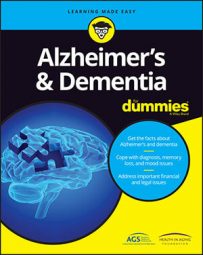Like dementia, mild cognitive impairment can affect a variety of normal thought processes including memory, planning, and judgment, but it doesn't impact mood or a person's ability to perform day-to-day functions. And, although it can be a sign of future dementia (most likely AD) for some people, around 60 percent of people who develop mild cognitive impairment don't get any worse and some even get better.
Some cases of MCI are caused by the development of similar protein deposits to those found in AD. This finding isn't surprising, considering that those people with MCI who go on to develop dementia mostly develop AD. Other brain changes noted in MCI include worsening blood supply and shrinkage of the part of the brain called the hippocampus, which is involved with memory.
No specific treatment for MCI exists and, in particular, no evidence suggests that the drugs used to treat Alzheimer's disease are of any use. You can gain some mileage, however, by addressing risk factors for poor circulation by controlling your blood pressure, eating a low-carbohydrate and high-fiber diet, quitting smoking, drinking alcohol within the limits of recommended guidelines, and getting regular exercise.
Increasing evidence suggests that keeping the brain mentally active by doing word and number puzzles, reading and maintaining stimulating hobbies, and social activities can help too.

